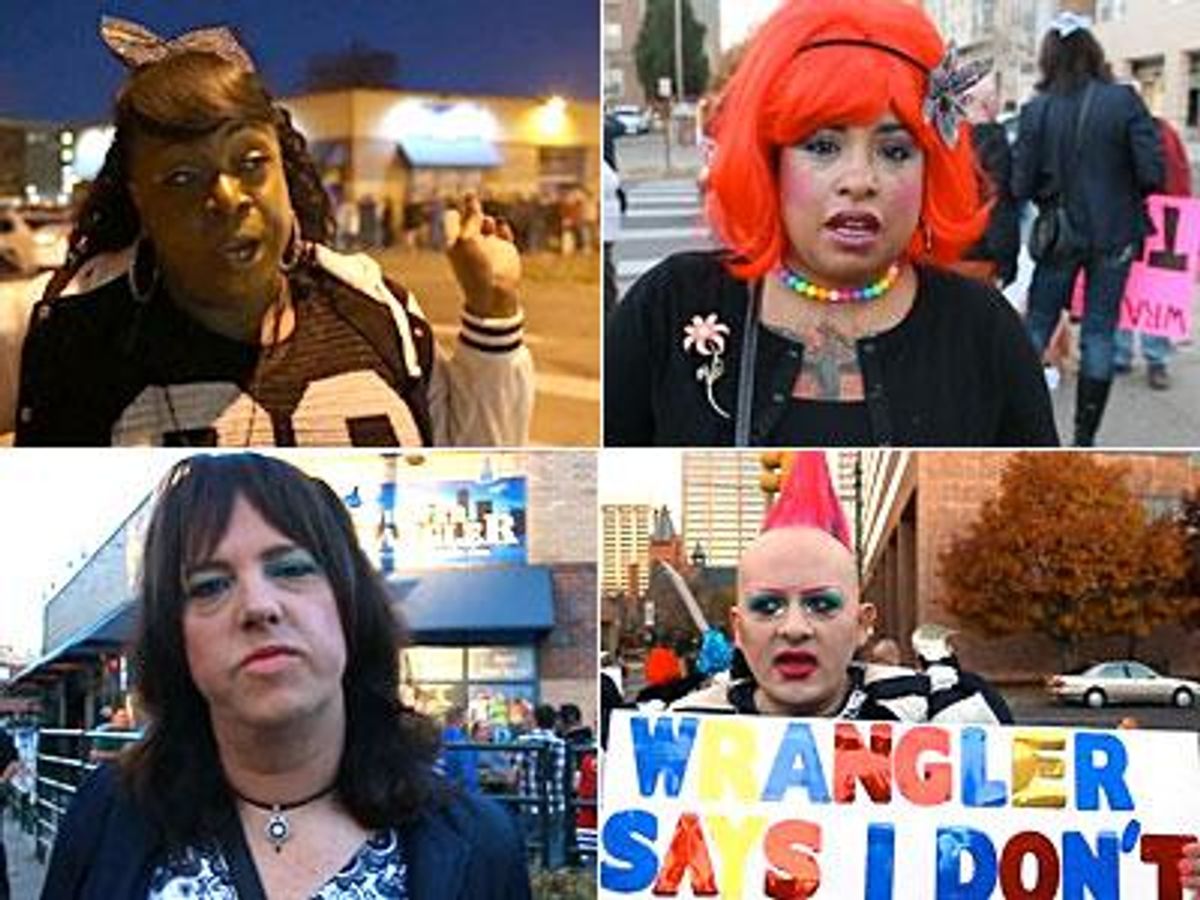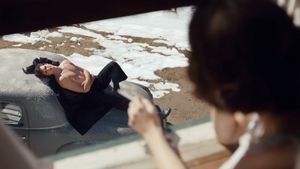A gay bar frequented by bears and leather daddies in downtown Denver is under fire from allegations that it discriminates against women, trans people, and gender-nonconforming people after a queer man in drag was denied entry because he did not look like the photo on his driver's license.
On August 31, Vito Marzano, 27, attempted to enter the Denver Wrangler, a venue widely known to be a leather and bear bar situated in the city's popular "gayborhood," after attending a fundraiser earlier in the night in drag.
In a confrontation with both the assistant and general managers captured on video, Wrangler management claimed that because Marzano has a beard on his ID but was wearing a wig as he stood on the sidewalk before them, they were unable to verify that he was the person he said he was or that he is of legal drinking age, and therefore would not permit him to enter the bar.
"Colorado law states that you must have an appearance-matching ID," manager Phil Newland told Marzano in the exchange. "It means your face looks like your face."
When Marzano accused Newland of being transphobic, the manager said that Marzano isn't transgender, since, "When you're transgender, you choose to live your life the way you're supposed to ... the way you're born, with your gender identity." Newland went on to explain that transgender men who have legally amended their gender would be welcome at the bar's weekly Beer Bust, which caters to men.
"I believe this policy is rooted in misogyny and transphobia equally," Marzano tells The Advocate. "Nevertheless, Phil did make it clear that if someone transitioned from female to male, they would be able to partake in Beer Bust. That being said, there is still the issue of how [the Wrangler] allows in patrons. Just because someone is transitioning and would be allowed to partake doesn't mean they would be able to get through the first hurdle of getting into the bar."
After Wrangler management rejected what Marzano says were repeated requests to engage in mediated conversations about the discriminatory allegations, Marzano called for a boycott of the establishment, setting up a Facebook page and website to collect what emerged to be a pattern of alleged discrimination against women, genderqueer people, and particularly those who present on a feminine end of the gender spectrum.
As Marzano's Facebook page grew, Denver resident and straight man Jeff Compton organized a protest outside the bar during Sunday's Beer Bust. Roughly 15 people stood outside the bar's patio between 4 and 8 p.m. Sunday, according to Out Front Colorado, many waving signs condemning the bar's allegedly discriminatory practices. Among the protesters were two popular local DJs who regularly perform in drag or gender-nonconforming attire who said they had both been denied entry to the bar.
"We are not trying to chip away at the intention of the bar to create a space for men who tend to be more masculine, based on societal standards of masculinity," explains Marzano, who identifies as a queer man. "We are just saying that there is an obligation to treat everyone equally. If someone who is genderqueer is out with a friend who is a bear, why should that person not be able to go to the bear's favorite hangout? We are trying to show them that the issue is hypermasculinity, which stems from misogyny."
Organizers of the boycott and protest have filed a discrimination complaint with the Colorado Department of Regulatory Agencies, and are now awaiting the owner's formal response -- which he has 30 days to file with the department. After the Wrangler issues a response and the petitioners have an opportunity to respond to that claim, the department will issue a written recommendation on whether the policy violates state law and what, if any, remedial steps should be taken.
Organizers contend the bar's policy violates Colorado law, which prohibits discrimination in public accommodation on the basis of sexual orientation. According to the Department of Regulatory Agencies, Colorado's legal definition of sexual orientation is inclusive of a transgender identity, which the state defines as "a gender identity or gender expression that differs from societal expectations based on gender assigned at birth." The state agency defines a place of public accommodation as "bar; restaurant; financial institution; school or educational institution; health club; theater; hospital; museum or zoo; hotel or motel; public club; retail store; medical clinic; public transportation; nursing home; recreational facility or park; and library." In offering examples of prohibited, discriminatory conduct, the site lists "denial of full and equal service; intimidation; failure to accommodate; access; conditions; privileges; advertising; and retaliation."
Newland did not immediately respond to The Advocate's request for a comment, but told Out Front Colorado that the bar's policy is lawful and not discriminatory.
"It's not a gender issue at all, we don't look at 'M' or 'F,'" Newland told OFC. "It is a reasonable expectation under the law that an individual look like their government-issued photo ID. If we have to squint or imagine what they look like, my staff calls me over. The beauty of our policy is it's so consistent to avoid discrimination and favoritism -- it's 100 percent the same for everyone."
Watch a video of Sunday's protest, filmed by LGBT activist Daniel Gonzales, below.



















































































